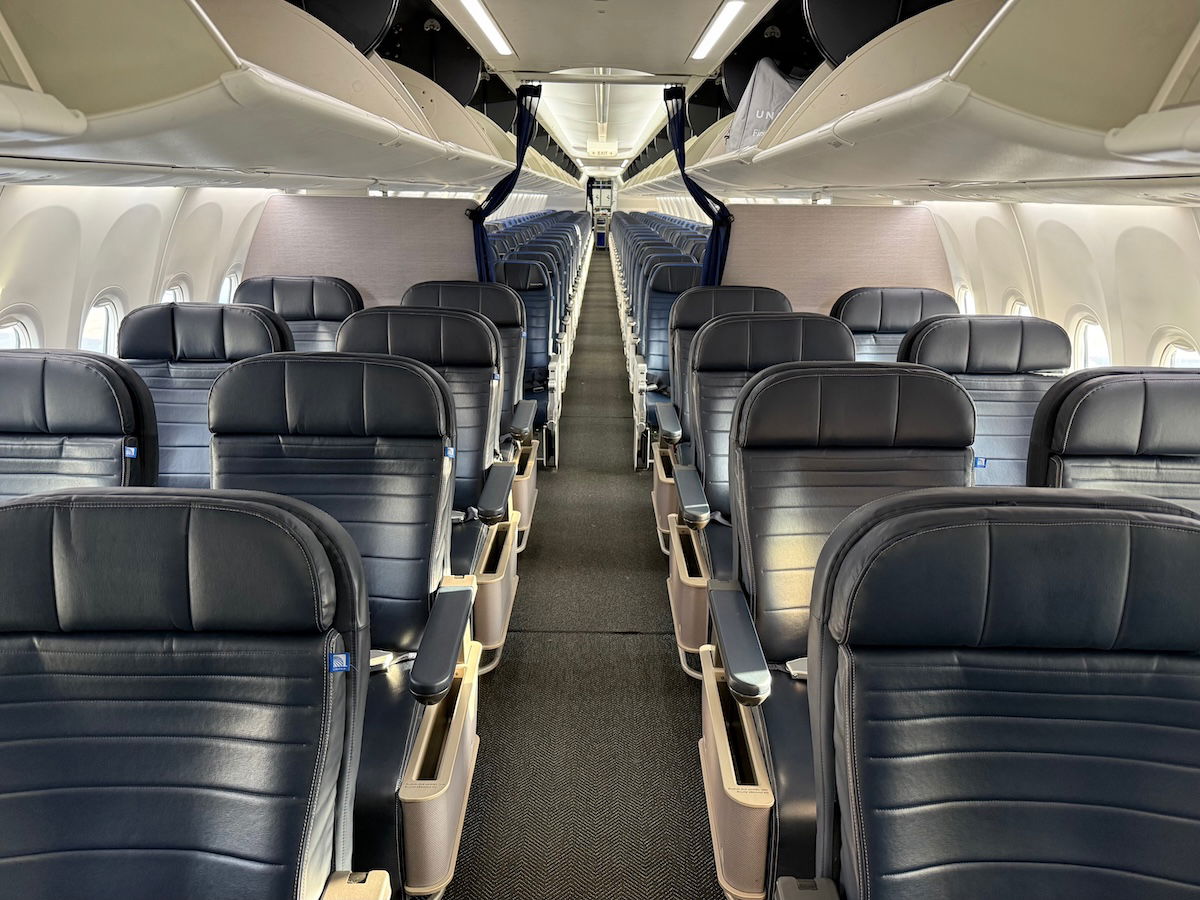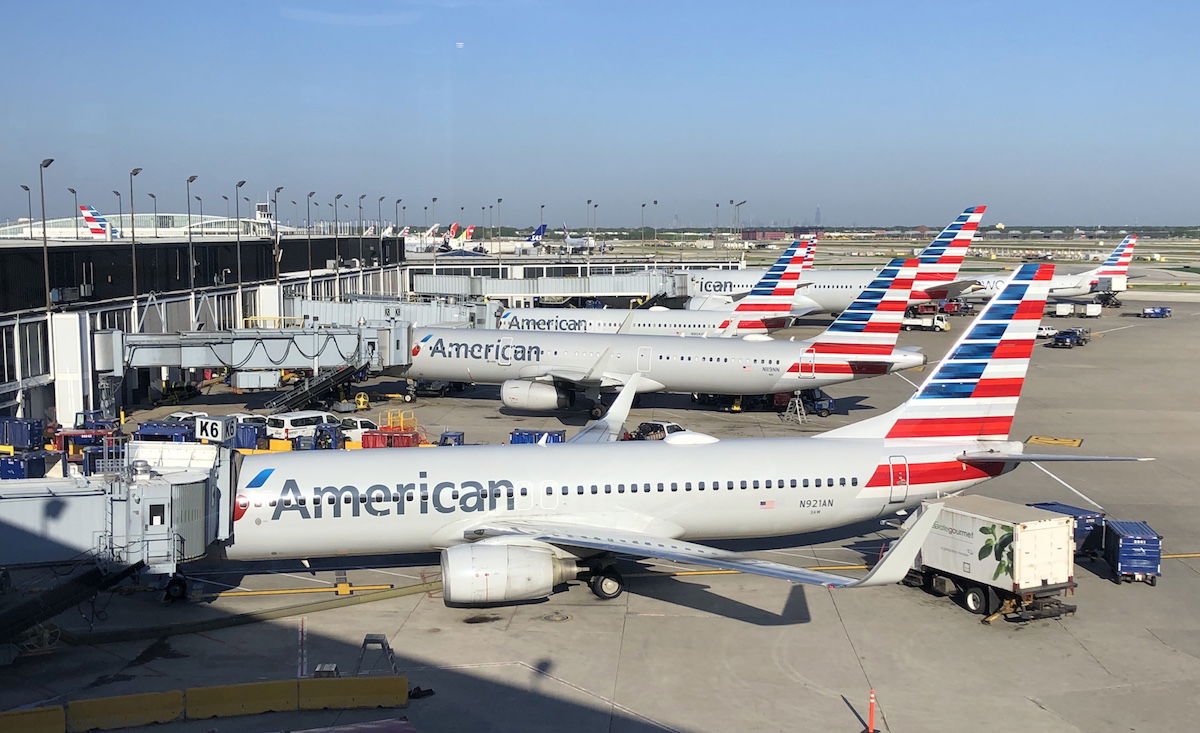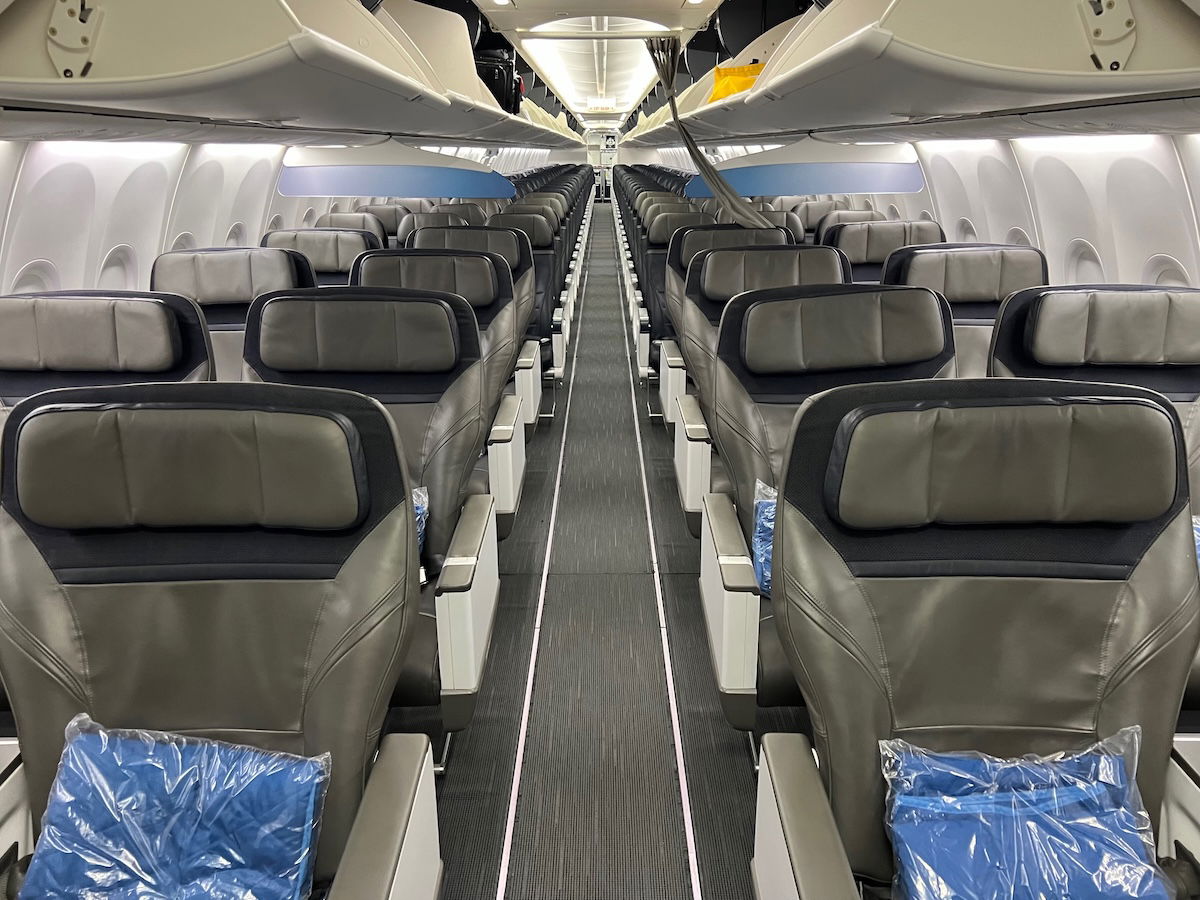Some people view miles as being “free,” and think that if they can redeem miles for a ticket, they should always do so. I don’t want to say that’s necessarily a bad approach (at the end of the day, everyone should use miles in a way that works for them), though personally I view miles as a currency, just as I would cash.
I put a value to all of my miles, and then when I consider redeeming them, I perform some basic calculations to decide whether to pay cash or redeem miles. Sometimes the math is straightforward, and sometimes it isn’t.
In this post, I’d like to provide an explanation of how I go about deciding whether to pay cash or redeem miles for an airline ticket. There’s nothing terribly complex here, though there are a few things that I think many people overlook, that could be worth considering. In a separate post, I’ve covered how to decide whether to pay cash or redeem points for hotel stays.
In this post:
Decide how much you value points currencies
When deciding whether to pay cash or redeem miles for an airline ticket, the first thing is to consider how much you value a particular mileage currency. I publish my valuations of major mileage currencies, and as you can see, I value them at somewhere around 1.1-1.5 cents each.
I try not to redeem my miles if the amount I’m saving is less than my valuation of miles. Let me acknowledge that other people understandably take a different approach:
- Many people view the miles they earn as their travel fund, and just don’t want to pay cash for tickets whenever possible, even if the redemption value isn’t amazing; that’s totally fine, since for many people the acquisition cost of miles is low
- Over time we might not follow our own rules around mileage valuations; you might redeem miles at a less-great value if you don’t have much cash to spend on travel, while you might not want to redeem miles even if it’s a good value if you’re saving up for a particular award and don’t have enough miles yet

Subtract the points you’re forgoing by redeeming miles
On the most basic level, the math is pretty straightforward as to whether you should redeem miles or pay cash. You compare how many miles a ticket would require to how much that ticket would cost in cash. You divide one number by the other, and you then decide if that cent per mile value is more or less than what you value the mileage currency at.
Say you want to book an American Airlines ticket. I value AAdvantage miles at 1.5 cents each, so let’s say a ticket would cost either 10,000 AAdvantage miles or $150. Does that make this a “breakeven” redemption? Not quite. You also have to consider the miles and points that you’re forgoing by redeeming rather than paying cash.
When I look at the cost of airfare, one of the first things I do is discount the airfare to account for the value of credit card rewards I’m earning for purchasing that ticket. There are some great credit cards for airfare spending. For example, the American Express Platinum Card® (review) offers 5x Membership Rewards points on airfare purchased directly from airlines (you’re capped at earning 5x points on up to $500,000 per calendar year, and then you earn 1x points). Based on my valuation of 1.7 cents per Amex point, that’s like an 8.5% return right there.
On top of that, you have to consider the miles you’d earn directly with the frequent flyer program. For example, if you’re an American AAdvantage Executive Platinum member, you’d earn 11x AAdvantage miles per dollar spent on airfare.
So if you booked a cash ticket on American while being Executive Platinum and paying with your Amex Platinum, you’d earn a return that I value at around 25% of that amount.
So using the same example as above, I would apply a 25% discount to that American Airlines ticket (in terms of what it’s really costing), so that $150 ticket really costs ~$113. That changes the breakeven math on a an AAdvantage redemption as well.

Decide if elite status is a consideration
This is something that’s potentially tougher to quantify. Some airline loyalty programs only count revenue flights toward elite status, while other programs count award flights toward status. So when you’re redeeming miles, you may be forgoing the activity that counts toward elite status, which you’d earn if paying cash (but that’s not the case with all programs). The reason this is tough to quantify is because for many people, elite qualifying miles are worth nothing:
- If you’re not going to qualify for status, then elite qualifying miles don’t get you anything
- If you’re overqualifying for status, then with many programs the incremental elite qualifying miles don’t get you anything
My valuation of elite qualifying miles (or whatever airlines name their currency of status qualification) doesn’t necessarily come from how much I’d be willing to spend on airfare to earn status (in other words, what I’d be willing to pay for a mileage run), but rather how much I’d be willing to pay for the status with no redeemable miles associated with it. That can still be hard to quantify, though, but is something that should be considered.

Flexibility is also an important consideration
I think the pandemic has given many of us a new appreciation for having flexibility with travel plans. We’ve largely seen airlines eliminate change fees on tickets, which is a fantastic development. However, there’s still a subtle but important distinction between paying cash for a ticket and redeeming miles.
When airlines don’t have change fees on revenue tickets, you can generally reuse the value of the ticket for some amount of time. However, you can’t generally get a refund. This isn’t an issue if it’s an airline you often fly with, but if it’s an airline you fly with less often, you could lose out there.
Meanwhile award tickets are generally refundable, which is to say that the full value of the miles can be returned to your account. In some cases there’s no cost to refund miles, while in other cases there’s a modest cost.
Still, I think at the end of the day this is a great advantage of redeeming miles over paying cash. For example, if I were looking to book a ticket on Qatar Airways, I’d much rather be able to have miles redeposited for free, than to have a credit with Qatar Airways that I can only use for a limited time. Of course you should also keep in mind mileage expiration policies, because they do vary.

Consider your bigger picture mileage goals
Rather than just considering the value of a particular award redemption, I think it’s worth looking at the big picture of what your goals are with miles and points. Is there a specific trip you’re saving up for?
In other words, say you have enough American AAdvantage miles for a trip to Hawaii, and the math checks out. However, is there a better option down the road? Is there a ticket on a partner airline in a premium cabin that you’d like to book in the near future, where you can get an even better value?
In general, you’re going to get the most value for your miles if you’re redeeming for first and business class on international flights. That’s not to say that those are the only good uses of miles, but if you do want to travel that way at some point, saving up your miles for that is the way to go.

Bottom line
It can sometimes be tough to decide whether to redeem miles or pay cash for a ticket, as there are lots of factors to consider.
The good news is that there’s not an absolute right or wrong answer as to what constitutes a good use of miles. Regardless, there are definitely some things to consider — decide how much you value miles, consider the rewards you’re forgoing by redeeming miles, think about whether you care about elite status, and also keep your overall travel goals in mind.
And if you’re someone who just views miles as something “free” that you’ll redeem toward your next trip regardless of the value, that’s totally fine too.
What’s your approach to deciding whether to pay cash or redeem miles for a ticket?





Good article. Currently I’m using my flight credits to buy tix. As an EXP I’ll gladly take the bonus miles.
When the credits are exhausted, I’ll do the math.
It would be really interesting to know the average rate of devaluation/"negative interest" per year, and how much this differs between programs.
@Peter, I was just thinking about your item #3. I would probably never pay $4000 for a one-way business class ticket from US West coast to London for example, but would likely pay up to 100,000 miles if I that was the best I could find and I was locked into a certain date. I likely wouldn't pay more than $1.5K cash, so I'm not really getting 4 cents per mile if I did have to pay that many miles.
Your calculations will be incorrect as your valuation can be unrealistic.
It's like you value LAX-LHR experience at $1500. Therefore if every airline is selling at $4000 i.e. anything at $1501 or more I will not fly?
What about $1550 will you fly?
And now with you value 100k at $1.5k valuation will be 1.5 cpm. So you will rather get 2% cash back instead of that business class ticket?
What about...
Your calculations will be incorrect as your valuation can be unrealistic.
It's like you value LAX-LHR experience at $1500. Therefore if every airline is selling at $4000 i.e. anything at $1501 or more I will not fly?
What about $1550 will you fly?
And now with you value 100k at $1.5k valuation will be 1.5 cpm. So you will rather get 2% cash back instead of that business class ticket?
What about flying in coach to LHR at 1.6 cpm, you will really pick coach over business?
Yeah, I think the point is that cpp only tells part of a story, right? It's a metric that folks like to flaunt in many ways - "I would never redeem my miles for less than 4.0cpp... only novices would redeem at 1.5cpp!" But it's really just a number we tell ourselves to make us feel better about an economic choice. And Ben's point, which is a good one, is that most people do not...
Yeah, I think the point is that cpp only tells part of a story, right? It's a metric that folks like to flaunt in many ways - "I would never redeem my miles for less than 4.0cpp... only novices would redeem at 1.5cpp!" But it's really just a number we tell ourselves to make us feel better about an economic choice. And Ben's point, which is a good one, is that most people do not even deduct the miles they otherwise would have earned in arriving at the cpp number.
Or what about one way vs round-trip ticketing. Very easy to use the one way number because award tickets are best booked in one-way segments. But you might pay $5k roundtrip versus $8k if you booked two $4k one way cash tickets, right? So in that made up example, shouldn't the denominator be $2500 versus $4000?
And then there's the "philosophy of a point" itself - it's almost as if points exist in this suspended animation world where they are this valuable mythical thing that is not quite money. Redeeming a point feels different somehow than spending $1, even though it's just another form of financial transaction.
A big consideration for me when the math is “near breakeven” is the opportunity of having that choice. How often do I purchase flights where I have the flexibility of making that choice (usually flights booked a few+ months out, routes with competitions, etc) vs how often will I find myself needing to book a last minute ticket that has a high paid rate but great point roi. As aspirational bookings become scarcer, I find...
A big consideration for me when the math is “near breakeven” is the opportunity of having that choice. How often do I purchase flights where I have the flexibility of making that choice (usually flights booked a few+ months out, routes with competitions, etc) vs how often will I find myself needing to book a last minute ticket that has a high paid rate but great point roi. As aspirational bookings become scarcer, I find myself getting most value out of those last minute (often domestic) flights. Alaska points on AA comes to mind here
The flyer (theoretically) pays taxes on money acquired, but doesn't pay taxes on points acquired. $100 in cash requires earning $120+, whereas $100 in points requires earning $100.
When there's so much inequality in miles, some having hundreds of thousands and some earning hundreds of thousands in a year while others earn few miles, it's time for Mamdani social justice.
Tax out of existence those with more than 250,000 mile balances. If you earn more than 100,000 miles in a year, even by sign on balances, you should be taxed at 50% of the miles. The rich get richer. Platinum level elite should...
When there's so much inequality in miles, some having hundreds of thousands and some earning hundreds of thousands in a year while others earn few miles, it's time for Mamdani social justice.
Tax out of existence those with more than 250,000 mile balances. If you earn more than 100,000 miles in a year, even by sign on balances, you should be taxed at 50% of the miles. The rich get richer. Platinum level elite should earn fewer miles per dollar spent
Mamdani number 1.. free bus service to JFK.
Hope you get the help you need.
People said the same with Adams 4 years ago.
Now the only thing free to JFK is his flights on TK.
I really want to turn this article into a spreadsheet at some point. The other factor I consider is if I have expiring travelbank with United or expiring credits.
Great analysis and considerations where many are simply focused on some inflated cpp statistic as the only metric.
Some other considerations-
1) Miles/points do not earn interest. It's kind of like keeping cash in a checking account. If you don't have a travel goal in mind over the next 12-24 months, you may be better off with cash back versus points.
2) Miles/points generally do not increase in value. Redemption opportunities seem to be getting...
Great analysis and considerations where many are simply focused on some inflated cpp statistic as the only metric.
Some other considerations-
1) Miles/points do not earn interest. It's kind of like keeping cash in a checking account. If you don't have a travel goal in mind over the next 12-24 months, you may be better off with cash back versus points.
2) Miles/points generally do not increase in value. Redemption opportunities seem to be getting more expensive. Redemption opportunities are a bit fewer and more far between.
3) What amount do you value the experience at? Ticket price does not necessarily correlate with your own valuation of what you would pay for the ticket.
Miles and points can nonetheless be incredibly valuable! But there's an overall discount value that should perhaps be applied to all of this beyond cpp = cash price - taxes/fees - value of miles not received by paying cash / miles redeemed.
I think you've made some really good points. I wander generally how volatile the valuation of miles/points are compared to USD, especially how often it is devalued. Since the miles only loses value overtime, it doesn't really make sense to bank them unless you have a specific, immediate goal in mind.
You forgot to mention miles / MCE seats.
Ok - how about "If AA would bother to have a sufficient number of MCE seats for people to pay for, it may actually be able to convince folks that fly AA only a handful of times a year to use their small mileage balances to pay for MCE seats that AA would otherwise give away for free to its status members. Someone who took a marketing 101 class could probably figure out how to...
Ok - how about "If AA would bother to have a sufficient number of MCE seats for people to pay for, it may actually be able to convince folks that fly AA only a handful of times a year to use their small mileage balances to pay for MCE seats that AA would otherwise give away for free to its status members. Someone who took a marketing 101 class could probably figure out how to do that more effectively - could even pretend they are "on sale" by showing that ordinarily the MCE seat would be [7500] miles but with the power of a strikethrough line you could get that MCE seat right now for the low price of [4999] miles! Act now, AI operators are standing by."
Better?
Ben,
A couple of notes :
1) On Alaska Atmos you get miles for your award travel, which simplifies the equation.
2) potentially if you points on an alliance carrier, it may require fewer points to be on the same plane. Recently, I booked a trip that was going to require 49k. I went to its European partner booked it for 28k. Opened the booking on the US carrier and it allowed...
Ben,
A couple of notes :
1) On Alaska Atmos you get miles for your award travel, which simplifies the equation.
2) potentially if you points on an alliance carrier, it may require fewer points to be on the same plane. Recently, I booked a trip that was going to require 49k. I went to its European partner booked it for 28k. Opened the booking on the US carrier and it allowed me to upgrade to 1st Class one way for 14k. So for 42k was able to book the same trip, and upgraded to first class vs 49k for round trip coach.